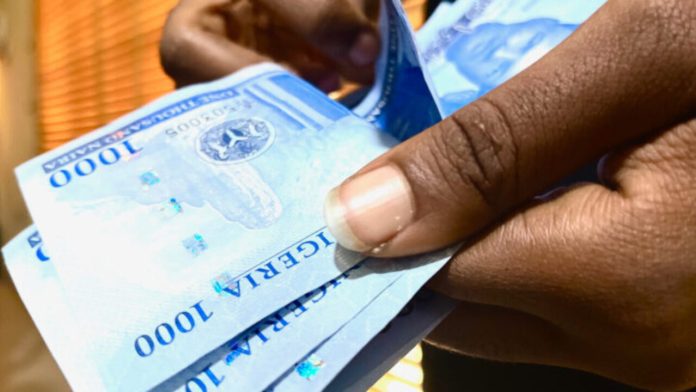The foreign exchange market closed on Wednesday with naira losing 0.89 percent in less than 12 hours as demand for dollars increased at the parallel market, also known as black market.
At the end of trading on Wednesday, the dollar was quoted at N785, which was lower than N778 traded in the morning trading session of the same day.
One of the traders said on Wednesday that there was demand from people who were buying the greenback for travel, school fees and other purposes.
At the Investors and Exporters forex window, naira appreciated by 3.52 percent following the activities of the willing buyers and willing sellers in the market.
After trading on Wednesday, the dollar was quoted at the rate of N742.31 as against N768.44 quoted on Tuesday, data from the FMDQ indicated.
On June 14, 2023, the CBN abolished segments of the official FX market to the I&E Window, where the “willing buyer and willing seller” was re-introduced.
Based on this adjustment, the official rate rose from N463.38/$ to N742.31, the current rate.
For the past six years, the exchange rate regime consisted of a highly managed official rate and an FX market lacking in clear and predictable price discovery, including due to the use of multiple FX windows to serve multiple purposes, the World Bank said in a report.
This led to limited FX supply at the official rate, pushing economic agents into a parallel market to meet their FX requirements, and generated arbitrage and rent-seeking opportunities.
According to the World bank report, aiming to reduce FX demand and preserve reserves while maintaining the stabilized official rate, the CBN also imposed administrative controls, including banning the use of FX for importing 43 products (comprising 936 product lines) since 2015, and reducing the size of its FX supply interventions since 2020.
“Overall, FX market distortions increased in recent years, and the official rate became significantly overvalued: the benchmark exchange rate, the Nigerian Autonomous FX Rate Fixing (NAFEX) rate stood at N465 per US dollar in May 2023, while the parallel market rate was N763 per US dollar. This was a 63 percent premium over the NAFEX rate and among the highest premiums in the world, the report stated.”
Meanwhile, the CBN’s gaping foreign exchange forwards backlog is hurting confidence in its latest currency reform and threatens to shut out foreign investors from the market.
The apex bank used to sell about $200 million in FX forward contracts every two weeks but soon ran into troubled waters as dollar inflows dried up and a dollar demand backlog swelled.
Investors who have been on a long queue for dollars are worried about the backlog and wonder why the CBN is not able to tap its $34 billion external reserves to settle the contracts.
Some estimates put the backlog at between $2 and $2.5 billion, which equates to less than 10 percent of the country’s external reserves.
“There is a six-month backlog of the forward contracts and that is undermining investor confidence. Our CBN is the only central bank in the world that defaults on obligations to investors,” a source said.
A currency forward is a binding contract in the foreign exchange market that locks in the exchange rate for the purchase or sale of a currency on a future date.
Market sources argued that clearing the backlog is a major priority of Nigeria’s new administration but the pace of settling the backlog has been too slow for comfort according to some investors.

